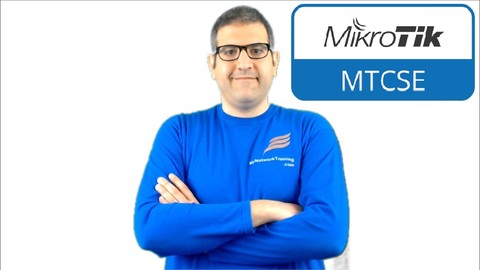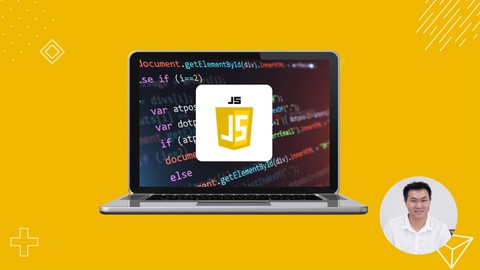Embedded Systems Object-Oriented Programming in C
Loại khoá học: Hardware
End-to-End Firmware and Driver Development: UART,GPIO,TIMER, etc. From Datasheet to Embedded C and C++
Mô tả
Are you tired of Copying and Pasting code you don't understand?
This course is for anyone seeking to improve their embedded firmware development skills. This course focuses on how to apply object-oriented principles to embedded firmware development.
By the end of this course you will be able to write Objected-Oriented Embedded-C Applications as well as Objected-Oriented Embedded-C++ Applications.
So with that understood, let me tell you…
Exactly What You’re Getting
This is dramatically different from any course you have ever taken because it’s more of a professional hands-on “field guide” to stm32 bare metal firmware development.
The reason why is because there’s no fluff or filler. It immediately gets down to the actual subject, showing you exactly what to do, how to do it, and why.
Plus, it’s easy.
And you’ll immediately “get” the entire mythology I personally use to build firmware for consumer devices in my professional life.
It's About MORE Than Just Getting the Code to Work
See, this course will change your professional life forever. Here is what one student had to say about the 1st version (STM32F4) of the course :
"So far this class has been awesome. I'm a C programmer that's been using Python a lot lately so this class helps to make my C code look a little more object oriented and class based. Also, he goes through how to transform some C code into C++ code which is pretty great"
Here is what another student had to say :
"Absolutely it was a good match for me because I am new to the OOP in Embedded system and I have now gained good Understanding of C++ and OOP for Microcontrollers. Very detailed and nicely designed course I will regularly check for the new update. I think it is the best course about OOP on Embedded system."
If at least one of the following applies to you then keep reading if not then simply skip this course:
" Escape From "
Copying/Pasting code you don’t understand
Using third party libraries and header files like HAL, LL and StdPeriph
Experiencing bugs you don’t understand
Being afraid of technical documentations like the reference manual and datasheet of the chip
Imposter syndrome
" Arrive At "
Building every single line of code from scratch by writing to the microcontroller’s memory space directly.
Using No third party libraries or header files
Understanding and writing every single line of code yourself- no Copy/Paste
Using the debugger effectively to analyze and resolve any bugs
Developing proficiency in your embedded development skills and confidently take the next steps
So like I said, there’s more than just getting each piece of code to work.
Here’s an overview of what you’re getting...
Analyzing the chip documentations:
Before developing the firmware for any chip you have to learn how to read the documentation provided by the chip manufacturer.
Defining Peripheral address
All components on the microcontroller have an address range. To write to a component or read from a component you need to locate its address range in the documentation and properly define the addresses in your code.
Creating registers from the address:
The addresses in the address range of a component represent the registers of that component. To access these registers you have effectively typecast the addresses.
Understanding CMSIS:
Cortex-Microcontroller Interface Standard (CMSIS)CMSIS is a standard developed by Arm for all Cortex-Microcontrollers. This is the standard used in professional firmware development
But it gets better because you’re also getting…
Deep Lessons on Object-Oriented Concepts
Like:
Polymorphism
Inheritance
Encapsulation
Specially Designed For People Who Hate Copy/Paste
Listen. If you don’t like “Copy/Paste” you’re not alone. I can’t stand it either. I’d literally rather have a piece of code that I wrote from scratch that doesn’t work than someone else’s working code I copied and pasted.
And that’s why I’ve spent months designing and recording this course in which I show you how to locate every single register used and the meaning of every hexadecimal value written into the register.
Also it comes with a money back guarantee so you have nothing to loose.
Bạn sẽ học được gì
Apply Objected-Oriented Principles to Firmware development
Write Objected-Oriented Embedded-C Applications
Write Objected-Oriented Embedded-C++ Applications
Write Embedded Systems Drivers and Libraries using Objected Oriented C and C++
Write firmware by applying Object-Oriented principles like Polymorphism, Inheritance and Encapsulation in C and C++
Write embedded drivers from scratch in C++ using information from the datasheet. E.g. GPIO drivers, TIMERS drivers, UART drivers etc.
Write embedded drivers from scratch in object-oriented C using information from the datasheet. E.g. GPIO drivers, TIMERS drivers, UART drivers etc.
Build every single line of code from scratch by writing to the microcontroller’s memory space directly.
Use No third party libraries or header files
Understand and write every single line of code yourself- no Copy/Paste
Use the debugger effectively to analyze and resolve any bugs
Develop proficiency in your embedded development skills and confidently take the next steps
Define addresses for the different peripherals
Analyze the chip documentation
Create registers from the addresses
Yêu cầu
- No programming experience needed - I'll teach you everything you need to know.
- NUCLEO-STM32F4 DEVELOPMENT BOARD
Nội dung khoá học
Viết Bình Luận
Khoá học liên quan

Đăng ký get khoá học Udemy - Unica - Gitiho giá chỉ 50k!
Get khoá học giá rẻ ngay trước khi bị fix.













![[2023] Master Spring MVC with Java for Beginners](/uploads/courses/udemy/5568212_520b_2.jpg)




Đánh giá của học viên
Bình luận khách hàng